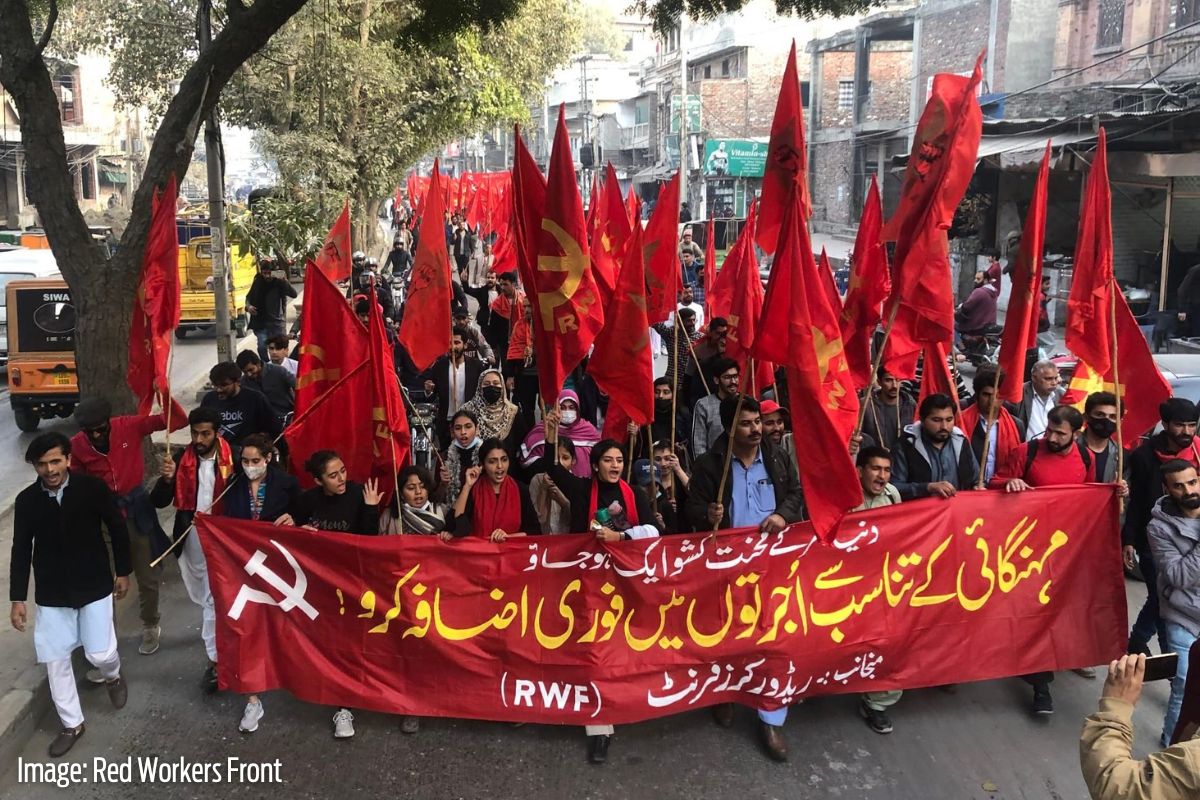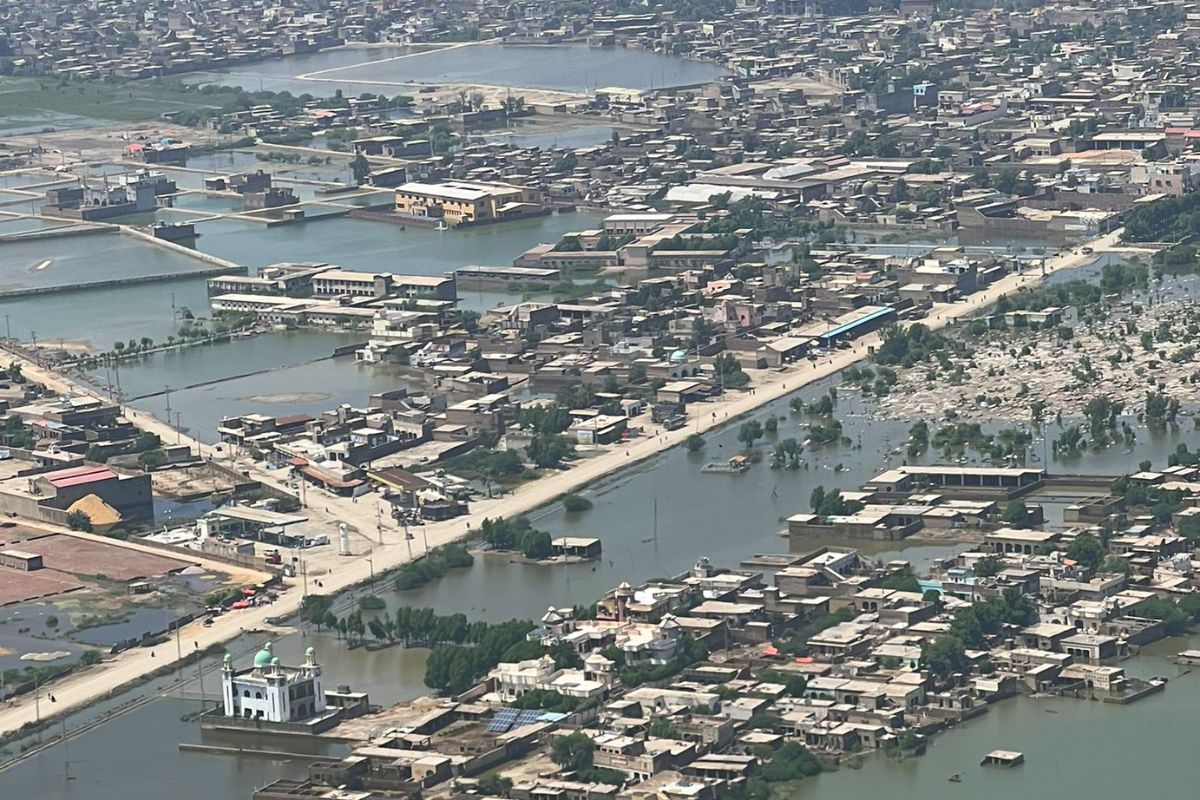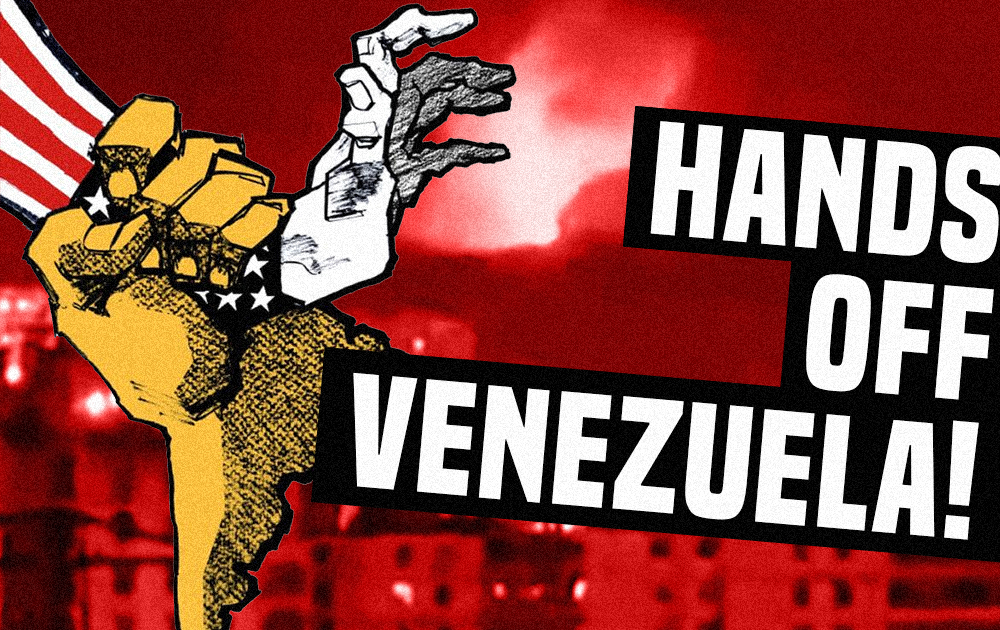Pakistan has been ravaged by floods and torrential rains, while the ruling class continues to loot and plunder the impoverished masses.
This is an abridged version of the article for the latest issue of Socialist Appeal. For the full version, with more details and analysis, visit marxist.com.
According to reports, around one third of the country has been devastated by the floods and rains of the last three months, while 33 million people have been affected. Around 1,400 have died, and around 4,000 injuries have been reported according to official figures.
And according to recent reports, 482,030 people have been displaced, while 372,823 buildings have been destroyed.
These figures give only a limited picture. The real devastation is many times greater: state authorities are unable to ascertain accurate figures on account of their incompetence and corruption.
According to some independent reports, around ten million people are suffering from acute hunger at the moment, having nothing to eat or drink. Many have not eaten for over a week and have had to walk long distances of up to a hundred kilometres barefooted to reach safety.
The devastation began in mid-June, when vast areas of Balochistan and parts of South Punjab were hit by rains and hill torrents. The ruling class, however, was busy with their infighting and power-grab politics. As such, the whole issue was ignored.
There had been ample time to ensure precautionary measures against the coming rains and flood waters flowing into the rivers. But nothing was done. It didn’t even register as a secondary news item in the mainstream media.
The dams, canals, and other related infrastructure of Pakistan were already in a state of collapse. This was due to the huge budget cuts of recent years, and the diversion of money either to defence expenditure, or the repayment of loans and interest payments to the IMF and World Bank. This was a recipe for a disaster.
Devastation
Livestock across the country have been devastated. This was the main source of livelihood for millions of people. According to initial reports, around a million livestock animals have died in these floods, but this is a gross underestimate. The real damage will prove to have been many times greater.
Floods have also washed away standing crops in many areas across the country. It is estimated by the UN that two million acres of crops and orchards have been affected.
Millions of farmers and agricultural workers have been directly hit; their meagre resources washed away. It may take decades for them to recover, though even that looks doubtful.
Sowing for the next season is also under threat and will be restricted. The longer the water takes to recede, the greater the delay in sowing the next crop, which is mainly wheat. This is notwithstanding difficulties in acquiring the financial resources to procure seed and other essentials for sowing crops.
This crisis has added to the woes of masses nationwide, as the price of agricultural produce has soared. In Pakistan, inflation exceeded 27 percent in August, a 49-year high. The impact of the flood hasn’t even been factored in yet.
The flooding has aggravated the health crisis in Pakistan, as diseases like cholera, malaria, dengue, diarrhoea, and others spread among the disaster’s victims, infecting millions.
The markets are always poised to fully exploit catastrophic events such as these. The hoarding of essential medicines and equipment leads inevitably to further skyrocketing prices.
The prices of tents and other essential items for flood-affected people have already skyrocketed, exacerbating difficulties in accessing them. The government and other regulating authorities are already suffocating through corruption and connivance with hoarders and contractors, who are using this tragedy to extract more profits.
Health facilities are already unavailable to eighty percent of the population in Pakistan. These floods have destroyed many of those few facilities that were available.
This tragedy further compounds the suffering of the masses with further injury and insult. Sole responsibility lies with the ruling class of Pakistan.
Economic crisis
Pakistan is already facing an acute financial crisis, and was on the verge of default last month. Following the path of the Sri Lankan economy, foreign reserves in Pakistan had fallen to one of their lowest levels, whilst the currency was depreciating at a rapid rate.
On the directions of the IMF, the burden of the crisis was shifted onto the masses, with unprecedented hikes in electricity and fuel prices, and a huge increase in taxes.
The floods have now aggravated this situation. It is estimated that $10 billion has been wiped off the economy. This will result in lower-than-expected GDP growth this year. Millions of workers will face unemployment as a consequence.
Though small donations have been announced by various countries and donors, most of this aid will be used to fill the coffers of the rulers, and will be lost in the corruption and loot of the state machinery. The flood-affected people meanwhile will be left to die through hunger and disease.
Climate emergency
One of the main reasons for these floods is global warming and climate change, which have multiplied the devastation caused by the looting and plundering of the ruling class.
This year, there has been unprecedented rainfall – around 190 percent above the average for the last three decades, in the quarter ending in August. In Sindh, the rains were more than 466 percent higher than previous years.
The melting of ice in the glaciers has also exacerbated the catastrophe.
In a 2011 report, it was calculated that the melting of glaciers in the first decade of this century was 23 percent faster than the previous decade. This was also the fastest rate in the world at that time. Things have deteriorated further since.
Anger

Looking at the state of the economy and infrastructure in Pakistan, the impact of this disaster will be multiplied in coming weeks and months. More rains are expected in September, and most of the infrastructure is already near collapse.
The Pakistani state doesn’t have the capacity to rebuild the infrastructure or rehabilitate the millions affected by these floods and rains, who will be left to die in distress.
According to various reports, around ten million people are facing acute hunger and thirst at the moment. There are no resources available even to reach these people. This is before even getting to the question of supplying them with enough food items, shelter, and clothing.
The working class of the country has expressed its complete solidarity with these flood victims and has shown much generosity towards the relief efforts. There is complete mistrust on the ruling class, however, and no one expects any improvement from these filthy rich vultures.
There is a seething anger and rage against the ruling class, which could burst out over any small incident in the coming period. A mass movement against the loot and plunder of the ruling class, capable of overthrowing the rule of these bloodthirsty creatures, is entirely possible.
Solidarity
Comrades of the IMT are putting forward a concrete programme for the working class, for the ridding of this bloodthirsty capitalist system. The Red Workers Front has launched a protest and solidarity campaign for the flood victims across the country, with support from the Progressive Youth Alliance.
Protests have been held in Karachi, D.G.Khan, and other cities against the callous and criminal role of the ruling class, while camps have been established in cities across the country to collect relief goods and funds for the flood victims.
These camps have been joined by various trade union leaders and workers, who have shown generosity amid difficult economic circumstances.
Only a socialist revolution can end this misery once and forever, and rebuild the whole of society on a modern basis, in which food, clothing, shelter, health, and education will be provided to everyone by a workers’ state, and all the resources of the country will be placed under the democratic control of the working class.
Rather than enriching the one percent who currently rule the country, these resources will then be used for the benefit of the whole population.
The impact of climate change could also be addressed, by overthrowing the capitalist system that lies at the root cause of this disaster.
The climate crisis shows that it is the responsibility of the workers not of one country, but of the whole world to fight against this devastation.
Only through workers of all countries standing in solidarity can the catastrophe afflicting the planet be averted.






